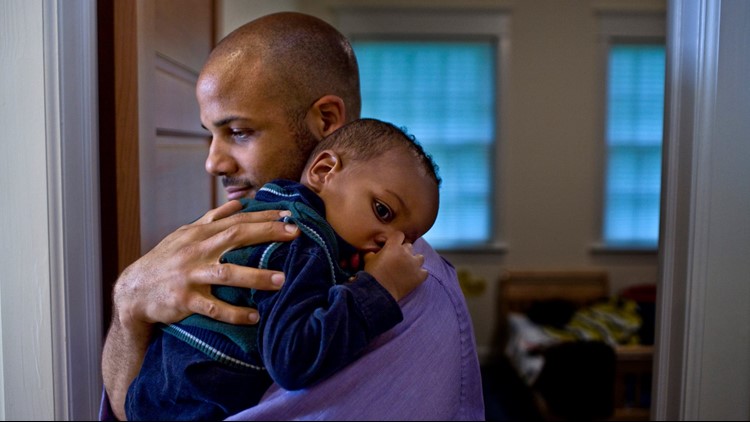Doctors are paying more attention to depression in new moms -- screening for it, identifying it and treating it.
But what about dads?
A study just published in the Journal of the American Medical Association, Pediatrics, dove deeper into this issue.
Mothers can be so depressed they are unable to care for their babies, which is why health care providers are determined to screen new mothers for depression. But there is little research on new fathers, and while the American Academy of Pediatrics does recommend healthcare providers screen "parents" for depression during visits, there aren't many studies looking at screening the dads for depression.
"We talk so much about gender discrimination in medicine and how women are often undiagnosed and undetected for the same disease or condition that men are. This is the opposite," said Dr. Jennifer Ashton, ABC News chief medical correspondent. "We don’t have our radar up to detect postpartum depression in men and we need to."
In the new study, researchers from the Indiana University School of Medicine looked through more than 9,500 pediatric community health center visits by parents of newborns, infants and toddlers. The majority of the parents who brought their children in for a visit were mothers, but 4.4 percent of fathers screened tested positive for depression -- roughly equal to the 5 percent of mothers who screened positive.
Since the screening form that was used in the study was only filled out by one of the parents, if there were two parents present, the study may have missed even more depressed dads who are out there.
The authors of the study point out that more research is still needed to see if the rates of depression are truly representative of broader populations, but this study clearly shows that we need to look closer into a group of people who may be suffering silently.
As depression in fathers has the same negative effects on a child’s development and behavior as a mom's, identifying and treating new fathers should be just as important. Doing so is key when providing a family-centered approach to care.
"We need to drop the stigma with all mental illness, whoever it affects," said Ashton. "Obviously dads are just as vulnerable as moms are."
While women, in general, tend to internalize symptoms of depression, men tend to externalize their symptoms, according to Ashton.
"They escape through activities that you can see," said Ashton, noting that those activities may include substance abuse, anger, outburst, irritability and gambling.
Men should be encouraged to express their feelings and to speak to health care professionals if they are experiencing symptoms of depression, noted Ashton.
"A lot of dads go [to the] first visit with the mom to the obstetrician or midwife. Ask that healthcare provider, say, ‘What can I do?,'" said Ashton. "You are not alone. You need to talk about this with someone."
Dr. Kevin Riutzel is a family medicine resident physician based out of Irvine, California and a resident in the ABC News Medical Unit.



